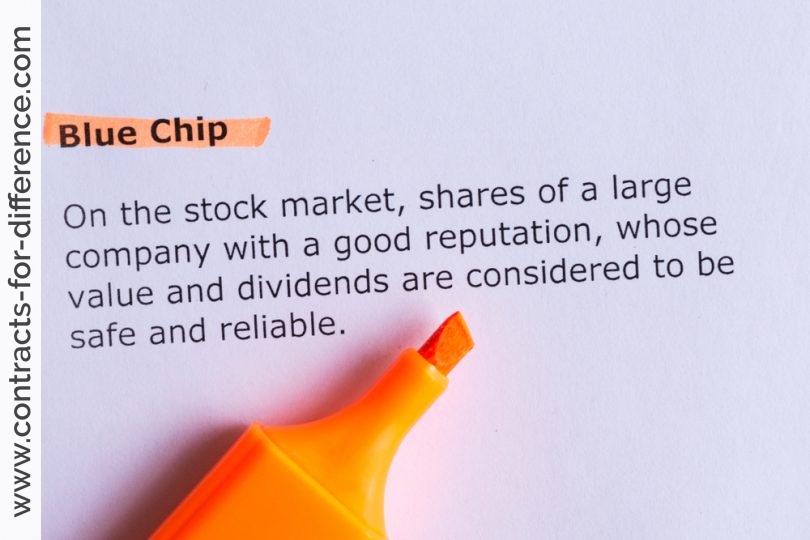Q:Small Cap vs. Blue Chip Stocks. How do they compare?
A: When you first set out to trade with contracts for difference (CFDs) it can be very confusing, particularly if you have not done much trading of any sort before. Here you will find the main points to be considered when choosing between markets.One of the advantages of trading CFDs is that they are available for most financial markets, whether you are interested in stocks, indices, currencies or even commodities. The Forex and futures markets already have financial systems that allow you to leverage your money, and even though they are not as flexible as using CFDs, we will consider here only stock trading using CFDs.
The major stocks or ‘blue chips’ represent large companies and industry. Usually there is another tier of corporate size, called the ‘medium-cap’ stocks, and then ‘small cap’, which is the rest of the companies which have gone public. Even though they are called small or low cap, they can still be a reasonable size – the smallest companies usually remain privately owned unless there is a compelling reason for them to raise money.
The bid-offer spread really matters over time, even if you think you’ve found a good buy…the difference between 3% and 9%… and has a far bigger impact that you might believe – especially if investing at about £3k each time….(just check how much you are immediately down on a purchase). It’s always best if possible to try and get the price when the spread is small…often the worst time to buy is at 8am when the spread can be way too much.
There are several factors that affect your choice of large cap or small cap trading. Firstly, the small cap shares are likely to be traded less, and this means that they usually fluctuate more in price, which is driven by the varying supply and demand. If you are on the right side, this can be a good thing as you can make a profit more quickly, but on the other hand they can lose value rapidly too. There is less information available for small caps, whereas you can find ample facts about large companies on which to base your stock selections.
The larger shares are traded in bulk by investment houses, as well as being available for the private trader, so the pricing is more clear and steady, having been proved repeatedly by the heavy trading. These shares aren’t as volatile and have smaller daily ranges compared to the more active low cap shares. It goes without saying that a $50 stock has to do a lot more to move 10% than does a 30 cent shares. Related to this is the liquidity of the stock, or how easy it is to buy and sell. The more trading that goes on, the easier it is to trade at or near the price you see currently on the charts. This may mean that for blue chip companies you can trade larger positions sizes for smaller daily to weekly moves.
As you are trading with CFDs, there is another factor, and that is the margin or deposit required. This is the security that the dealer takes to cover any losses from a move in the wrong direction. As the shares of larger companies are not expected to fluctuate much, and are in any case easier to sell, the margin is low, perhaps 5% of the share value. With small cap shares the margin is normally much higher because of the volatility in the price, and you may not be able to find CFDs on the smallest companies.
This margin requirement means that, despite there being less movement in the price of blue chip stocks, you will be able to control a much larger value with the same amount of deposit, so the fact that they may not vary by so much as small caps is negated; given the ease with which they can be traded, and the better predictability, it’s well worth looking at starting with CFD trading on blue chips. By focusing on blue chips, you’ll also get the mindset of the right position sizing methods to best achieve your trading goals.
I often get asked why I invest in microcaps. As you might know I am pretty aware that I am not Michael Jordan. I’m an average player but I’m a good networker (coach if you want). As a Coach my intention is to win, win a lot = create alpha as much as possible. But how?
You can build a team of NBA players but you still won’t win every year. Competition is immense in the NBA (Hint: in Large Caps). So I decided to find NBA players who just play for the love of the game, going with me to Austria to win the league every single year. So what does that mean for investing!? Microcap Investing means you play the game against less hard competition-most NBA players are too big for them. So if you got NBA players (some are in my spaces) that play the microcap game, it might be a good way to create alpha…


Leave a Comment